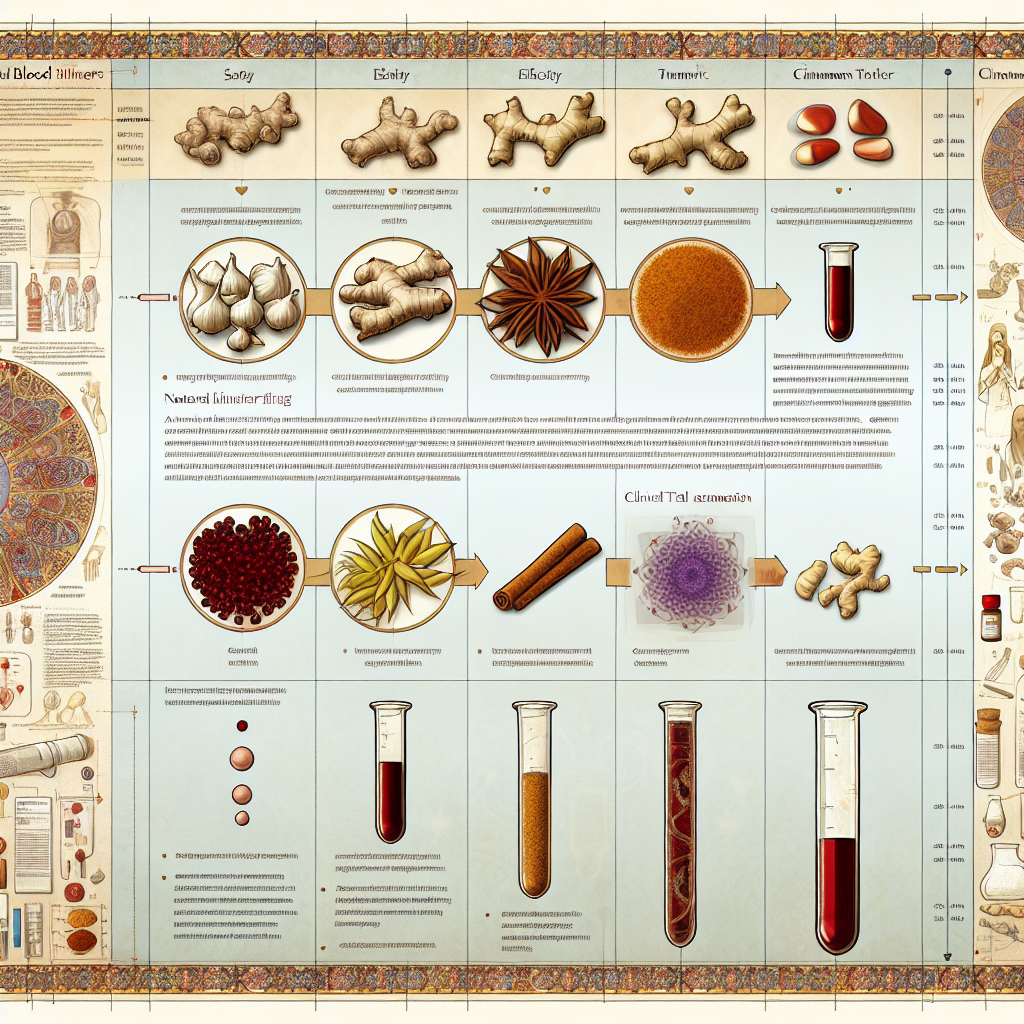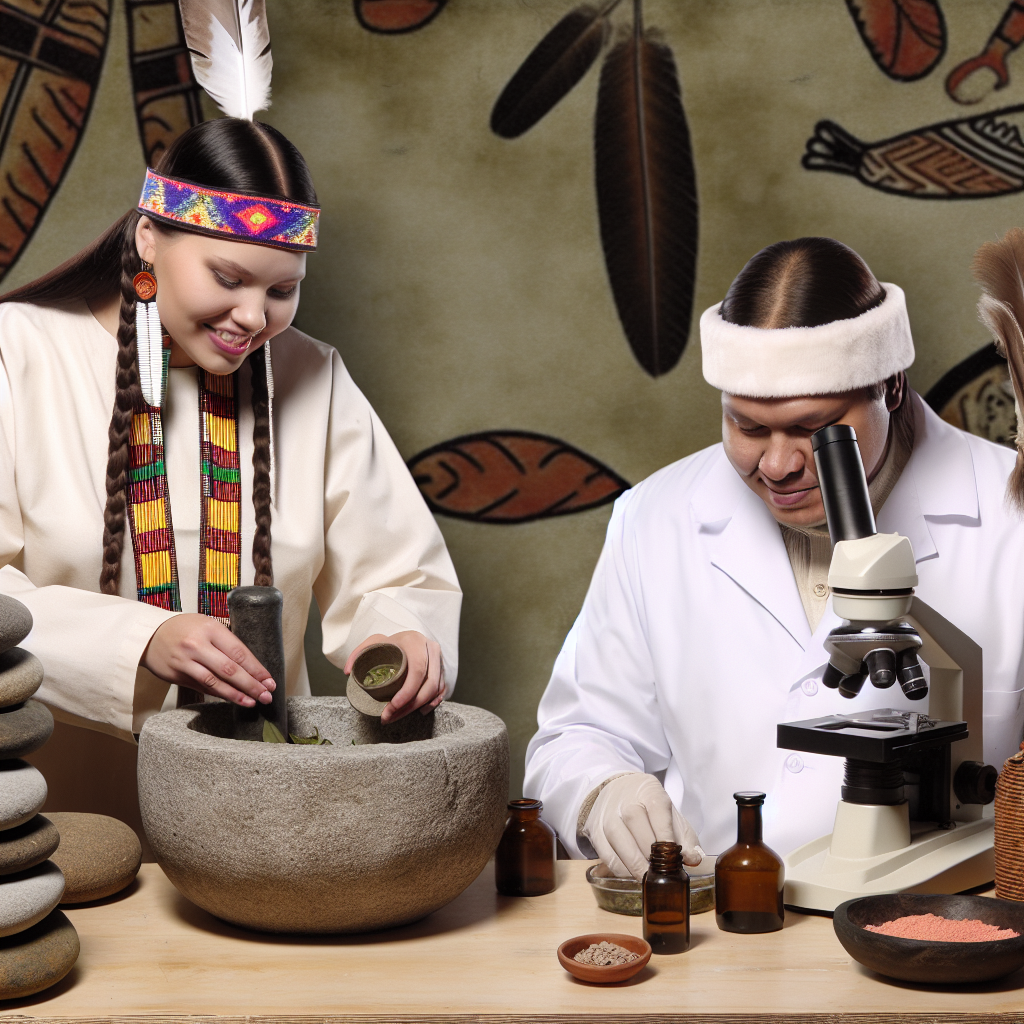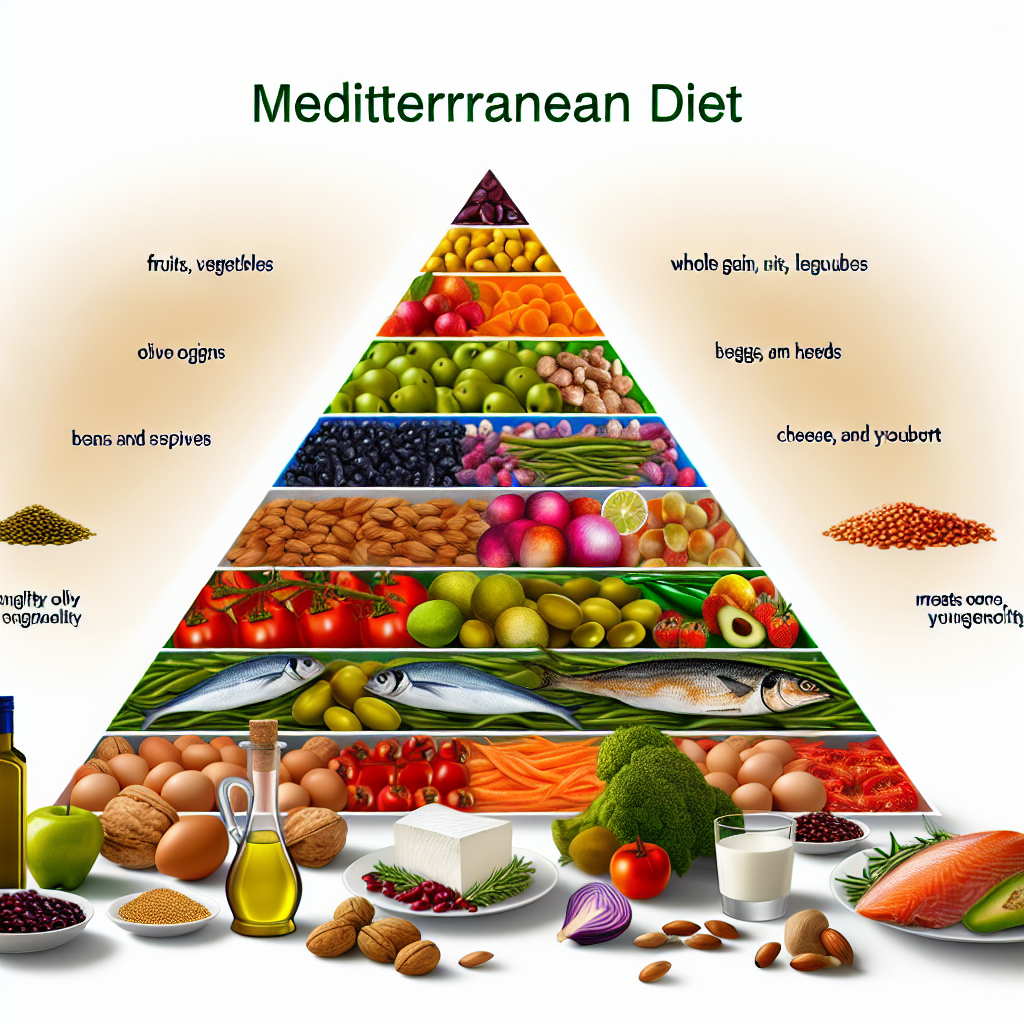Natural Blood Thinners: Comparative Clinical Studies
Introduction: Tapping Into Nature’s Cardiovascular Guardians
In today’s highly digitalized world, global access to information about health and well-being has empowered people to take a proactive approach to managing cardiovascular health. Nature has equipped us with various herbs, spices, and plant-derived substances that exhibit anticoagulant properties. Scientific studies have begun to delve into the efficacy of these natural substances, analyzing their performance in thinning the blood while minimizing adverse effects.
Turmeric: The Golden Healer with Anticoagulant Powers
A 2012 study published in Biochemical Pharmacology demonstrated that curcumin, the active compound in turmeric, inhibits platelet aggregation and reduces clot formation. The research concluded that curcumin’s anticoagulant effects were comparable to those of aspirin, albeit with fewer reported gastrointestinal side effects.
Ginger: A Spicy Solution for Blood-Cutting Benefits
A 2015 study published in the Journal of Nutrition and Metabolism examined the blood-thinning capabilities of ginger. The study revealed that ginger reduced platelet aggregation and lowered blood clotting factors, making it a promising natural anticoagulant.
Garlic: The Sulfur-Packed Cardiovascular Ally
A 2007 study in Prostaglandins, Leukotrienes, and Essential Fatty Acids found that garlic significantly reduced platelet aggregation in participants, improving overall blood circulation. The study compared garlic extract’s efficacy to aspirin and emphasized its potential as a complementary treatment.
Ginkgo Biloba: Ancient Wisdom in Modern Anticoagulant Therapy
A 2013 study published in the Journal of Cardiological Pharmacology compared the anticoagulant effects of ginkgo biloba extract to synthetic medications. Findings suggested that ginkgo biloba was particularly effective in preventing minor clots but advised caution for individuals undergoing surgery or already using blood-thinning medications.
Cinnamon: A Sweet and Spicy Natural Anticoagulant
A small-scale 2014 study in Phytomedicine analyzed the role of cinnamon extract in reducing blood clot formation. Researchers concluded that while cinnamon demonstrated mild anticoagulant activity, its long-term use required monitoring due to the potential for liver toxicity when consumed in high amounts.
Weighing the Promise and Precaution of Natural Blood Thinners
Each of these natural substances has a distinct mechanism of action, from decreasing platelet aggregation to lowering blood clotting factors. They often work synergistically with the body’s natural processes, offering a holistic approach to cardiovascular health. However, it’s essential to balance efficacy and safety, particularly for individuals with pre-existing medical conditions or those taking pharmaceutical anticoagulants.
Conclusion: Embracing Nature for Cardiovascular Health
The pursuit of natural blood thinners as alternatives to conventional medication is both intriguing and promising. Herbs and spices such as turmeric, ginger, garlic, cinnamon, and ginkgo biloba exhibit significant anticoagulant properties that can aid in preventing harmful blood clots. Clinical studies affirm their effectiveness, often comparing well to traditional blood-thinning medications. However, these natural remedies also highlight the importance of dose control and mindful consumption to avoid potential risks such as excessive bleeding or liver issues.
References
1. Biochemical Pharmacology (2012). Turmeric’s Curcumin and Platelet Aggregation.
2. Journal of Nutrition and Metabolism (2015). The Anticoagulant Effects of Ginger.
3. Prostaglandins, Leukotrienes, and Essential Fatty Acids (2007). Garlic as a Natural Blood Thinner.
4. Journal of Cardiological Pharmacology (2013). Ginkgo Biloba in Anticoagulant Therapy.
5. Phytomedicine (2014). Psychosocial and Biological Risks of Cinnamon in Platelet Function.
Concise Summary:
This article explores the current research on natural blood thinners, including turmeric, ginger, garlic, cinnamon, and ginkgo biloba. These natural substances exhibit anticoagulant properties and have been compared to traditional blood-thinning medications in clinical studies. The article discusses the efficacy, safety, and potential risks of incorporating these natural remedies into cardiovascular health management, emphasizing the importance of consulting healthcare providers, especially for individuals with pre-existing conditions or taking pharmaceutical anticoagulants.

Dominic E. is a passionate filmmaker navigating the exciting intersection of art and science. By day, he delves into the complexities of the human body as a full-time medical writer, meticulously translating intricate medical concepts into accessible and engaging narratives. By night, he explores the boundless realm of cinematic storytelling, crafting narratives that evoke emotion and challenge perspectives.
Film Student and Full-time Medical Writer for ContentVendor.com



